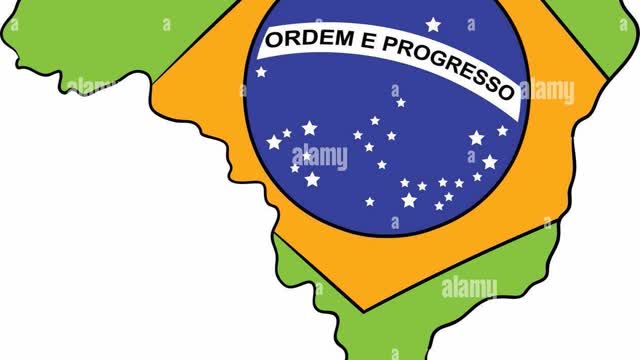Premium Only Content

Brazil's history
Brazil is the largest country in South America and has a rich and diverse history that has been shaped by indigenous cultures, European colonizers, and African slaves. Here is a brief overview of some of the major events in Brazil's history:
Pre-Colonial Period (ca. 12,000 BC - 1500 AD)
The region that is now Brazil is first settled by indigenous peoples, including the Carib, Arawak, and Tupi tribes.
Colonial Period (1500 - 1822)
Portugal claims Brazil for its empire and establishes a colony in 1500.
The colony's economy is based primarily on sugar production and the use of slave labor.
In 1763, the capital of the colony is moved from Salvador to Rio de Janeiro.
Independence (1822)
On September 7, 1822, Prince Pedro declares Brazil's independence from Portugal and becomes its first emperor.
Empire and Republic (1822-1889)
The country is ruled as an empire until 1889, when a republic is established after a military coup.
Industrialization and Urbanization (late 19th - early 20th century)
The country's economy grows rapidly as it industrializes and urbanizes.
Getulio Vargas Era (1930-1945)
Getulio Vargas becomes president and establishes a populist government that focuses on industrial development, labor rights, and social welfare.
Military Dictatorship (1964-1985)
Brazil is ruled by a military dictatorship that is known for its human rights abuses and censorship of the press.
Democracy Restored (1985-present)
After the dictatorship ends, Brazil becomes a democracy again and continues to develop economically and socially.
This list gives a general idea of Brazil's history, but there are many other events and periods that are worth studying and learning about. Brazil has a rich cultural, ethnic and political history that it keeps shaping the country till date.
-

LFA TV
1 day agoTrump’s Triumphant Year | Trumpet Daily 12.30.24 7PM EST
5.72K2 -
 LIVE
LIVE
Quite Frankly
7 hours ago"2024 Review, Homunculus Flu, Old/New Year Predictions" 12/30/24
1,533 watching -
 LIVE
LIVE
RonjnJeremy
10 hours ago $7.16 earnedClassic Wow 20th Anniversary edition HC SF, Rogue..PT8 lvl 46+ Just need to stay alive...
278 watching -
 1:50:28
1:50:28
Jesús Enrique Rosas
7 hours agoEp. 51: Gates wants CENSORSHIP, Colbert MESSES UP, AOC meltdown, Hanks LEAVING and MOAR!
85.5K38 -
 1:45:47
1:45:47
The Quartering
9 hours agoHuge Censorship Law To Pass, Trump Endorses Johnson, TikTok is Saved? & Today's News!
113K78 -
 55:59
55:59
The Amber May Show
7 hours ago $0.37 earnedCommon Behaviors That May Indicate You Are In An Abusive Relationship| Grace Bishara
11.6K1 -
 1:54:42
1:54:42
MTNTOUGH Fitness Lab
4 hours agoThe MTNTOUGH 8 Week LIVE READY Challenge w/ Kyle Kamp | MTNPOD #97
8.16K -
 DVR
DVR
WeAreChange
3 hours agoTrump Make CRYPTIC Post! Bill Gates Requested Meeting With Elon Musk At Mar-a-Lago??
14.2K8 -
 53:39
53:39
PMG
3 days ago $2.23 earned"Allegations Against Diddy & Usher, $150K Bounty on Trump, RINO Speaker Caves w/Steve Baker"
17.6K2 -
 1:31:21
1:31:21
Tucker Carlson
8 hours agoBrigham Buhler: UnitedHealthcare CEO Assassination, & the Mass Monetization of Chronic Illness
209K268